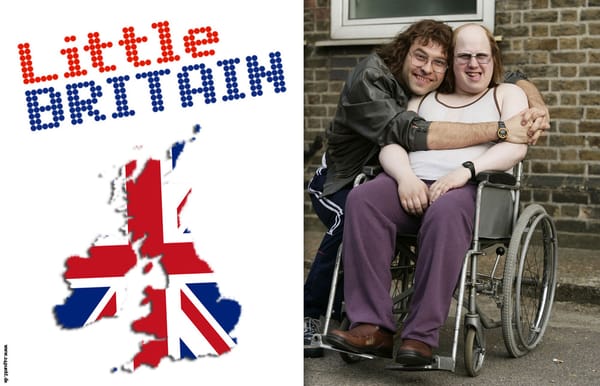Hating headlines that tell you how to feel
There’s something strange about the way we treat emotions; they have become products to be bought and sold. It was crazy American Pentecostal Christianity that first got me thinking about this.
There’s something strange about the way we treat emotions; they have become products to be bought and sold. It was crazy American Pentecostal Christianity that first got me thinking about this. I went to a Pentecostal service in Philadelphia with a family with whom I was staying. The differences between the mass of my Irish Catholic upbringing and this service couldn’t have been starker. I’d never seen anyone roll around the floor speaking in tongues before; soon I’d seen four of them. But more surprising than this was the way that the pastor spoke about Jesus. Jesus, we were told, would make you feel great. You know that feeling when you slurp down a cold Coke on a hot day? Jesus is like that times a thousand. Believing in Him makes you feel just swell; a refreshing, ice cold Diet Christ.
I’m not religious but this seems a strange interpretation of the Christian message. This god-turned-man who shook Jerusalem to its core, who made the lame walk and the dead breathe again, who faced unimaginable torture, humiliation and ultimately death for the sake of people he had never met and yet loved, he will make you wriggle around on the floor like a drunk seal attempting sit-ups, spewing meaningless noise in front of your children and peers in a fit of self-pleasing nonsense. The Messiah, served up like a pill to be popped. Would you like fries with that?
I’ll leave religion to the religious but this desire to focus on emotional outcome as a product, regardless of content, is to be found in abundance throughout the secular world. “I wanted my kids to be able to feel proud of me as their mum”, says the actress in the TV ad. The ad, it turns out, is for teeth whitening but that doesn’t really matter. It could be for a car or a holiday or a new generation of Pokémon, what is really being sold is the feeling of your children being proud of you. Want that feeling? Buy that feeling. Pay in monthly instalments for that feeling. Nowhere has this trend been more extreme than in the “click bait” articles now swarming social media. “What This Boy Has To Say About Family Is The Most Moving Thing You Will Watch Today [VIDEO]”, essentially, “click here to feel moved”. More extreme click bait headlines go as far as to offer a running commentary on how your emotions will change while watching the imbedded video: “At 0:22 you’ll wonder where he’s going with this, at 1:45 you won’t believe your eyes and by 3:43 you’ll be fighting back tears”. This blow-by-blow breakdown sterilises the content, eliminating the potential for unexpected emotions to creep through. Someone has already digested the content for you, just open your beak and let UpWorthy vomit video clips directly down your grateful gullet. Chewing is so last century.
“The Messiah, served up like a pill to be popped. Would you like fries with that?”
Perhaps worst of all is how the emotions salesmen make irrelevant the product they claim to be selling. In selling us the emotions their product will give us, they switch attention from the product to the users. To an extent, this is perhaps harmless. It may be true that we are more likely to buy a new pair of running shoes based on how good their TV ad made us feel, rather than how much faster or more comfortably they will make us run, but at least no one gets hurt in the process, and you do get some shoes. Watching this approach in the charity world is a different matter. When it comes to helping others, our focus must be on the recipient of that help; their wants and their needs. Now look at the charity industry. Two years and two weeks ago we had #Kony2012 aiming to raise awareness of the Lord’s Resistance Army in East Africa. It did this with a thirty minute video that featured one Ugandan child and two Ugandan politicians. It also featured dozens of white American activists, in particular the campaign’s director and his adorable toddler son. Facts (such as the fact that the LRA hasn’t been in Uganda for a decade) were sidelined in place of images of these activists pumping their fists in the air and rushing about smiling. Had it been made for UpWorthy, they might well have said “by 2:34 you’ll hear about a country you’ve never heard of that’s poor, at 5:42 you’ll see the cutest American kid with the coolest dad and want to hug them both so hard, at 12:36 you’ll hear about child soldiers but don’t worry, it’s from the perspective of the cool American dad, at 25:17 you’ll see lots of people who look just like you and are having loads of fun, at 31:02 you’ll share this with your friends on Facebook #SOMETHINGNEEDSTOBEDONE and feel great about how you saved those kids, at 33:40 you’ll have forgotten all about it”.
Kony2012 was a massive failure. The video targeted emotion, not conscience, and people got the thrill of ‘doing something’ from just sharing the video and forgetting about it. When we make charity about ourselves and how we feel, rather than about those we are purporting to help, we don’t help. This is why ‘voluntourism’ is so popular, despite being so obviously ineffective. Spending thousands of pounds to send an untrained gap year student to travel to Africa and teach English for a month, rather than provide a qualified, local teacher who would earn a thousand pounds in a year, would never happen if our concern was those we claim to be helping. Our concern is how great and heroic our student gets to feel, and that’s who we end up funding.
Let’s press refresh. Emotions are important, they’re human. Sometimes they make things unbearable, other times they’re the only things keeping us going. We kill all of this if we degrade emotional responses to the status of a product. We should buy stuff, do stuff and help people on the basis of what those things are or what those people need. If they make you feel good afterwards, great. Be prepared for the possibility that they won’t. Don’t click on the next article that tells you everything about how you’ll feel after clicking and nothing about what it actually contains. Think for yourself and feel for yourself and at 36:52, or whenever the hell you want, you’ll be a normal human being again.







